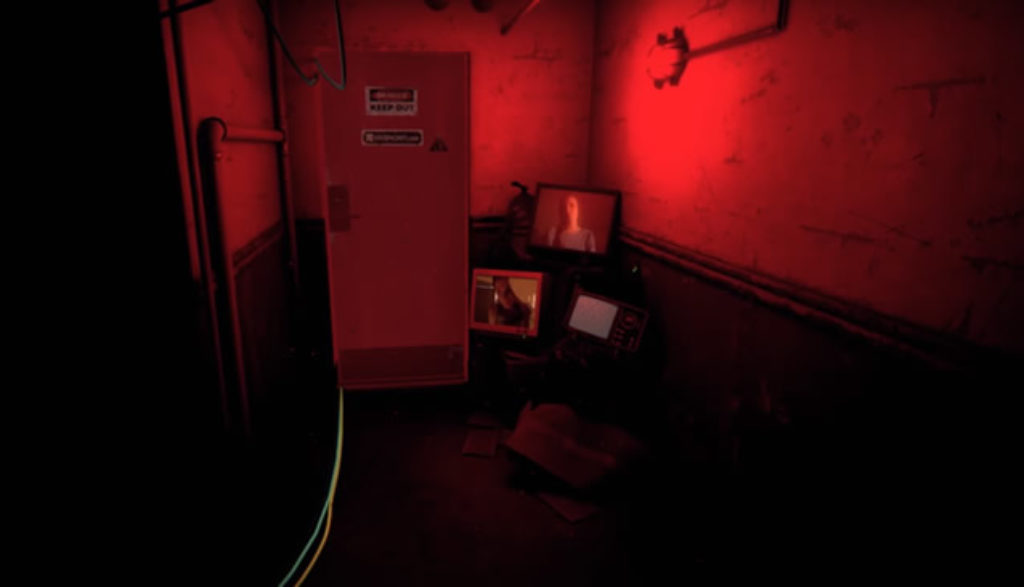
Escape rooms are pretty popular these days.
Never heard of them? Well, here’s a crash course: A group of people get locked into a room or building packed with tons of random items, furniture and knick-knacks, and together they have to figure out how to escape. They’ve got clues—plenty of clues. And so these locked-up junior detectives have to search and sift through everything they can find, slowly piecing together the crucial scraps of information that lead to their freedom.
If you’ve ever experienced an escape room, or thought you might like to give one a try, a team of developers think they might just have your gaming apple dumpling. Ubisoft Montreal and Elijah Wood’s film production company, SpectreVision, have teamed up to create an M-rated, VR escape room thriller called Transference.
Right out of the box, this game lets you know that you’re in for something a little different. Not only does its immersive VR experience drop you into a world that expands in multiple directions and dimensions, it also mingles digital environments and puzzles with live-action film clips.
Things kick off with a cinematic sequence featuring a scientist named Raymond Hayes. He tells us that he’s finally had a research breakthrough involving the transference of organic cognitive consciousness into a virtual environment. Why, this could open the door to mankind’s dream of eternal life, perfect beauty, peace and tranquility. It could essentially offer a kind of heavenly digital paradise.
Of course, the slight glitches in Haye’s recorded missive instantly suggest that one man’s eternal virtual paradise … might not be quite what he’s promising.
From there, gamers are ushered into the science guy’s home. Or, I should say, they’re locked up in an obviously degrading digital realm that changes with any opened door or flipped light switch. The place is missing key bits that must be found in order to make it past the red computer-program error messages that bar your path.
So players must locate missing door knockers, discarded keys, children’s plastic magnetic letters, the proper frequency on a radio dial, the correct literary quote, the right sequence of notes played on a piano—and the list of what’s needed to solve puzzles and repair computer files stretches on and on.
And so does the house itself.
Adding to the complexity here is the fact that, as I mentioned, when you flip on a light switch, you’re sent into one of three coexisting realities. Each version of Hayes’ house looks similar in some key ways, but each also has different colors and different arrangements of closets, doors, hallways, etc.
Along the way, gamers also discover videotapes, film reels and USB drives that give live-action context to the disturbingly tragic mosaic that gradually emerges. In short, we witness how Hayes’ fevered passion for discovery painfully impacts and corrupts the lives of his wife, Katherine, and their son, Ben.
Those movie-like cutscenes take some dark turns that are then transferred to the digital escape room itself. There’s never anything horrendous onscreen, other than a splash of blood on someone’s face. But the lighting effects, disconnected voices, rattling doors, digitally fractured images and revelatory vlogs give this game a palpably unsettling feeling—especially when you’re virtually standing right there in the middle of it all.
As the story spirals down into a claustrophobic rabbit hole of madness—in one case quite literally—you can easily start to think that this game is more horror than thriller. More perdition than paradise. More emotional imprisonment than fun escape exercise. (That discomfort is intensified by a single exclamation of the f-word and a single use of “god–mned!”).
There’s no denying the detailed creativity invested in this digital challenge. But be forewarned: This particular escape room is no place for eager young detectives. And even those who consider themselves seasoned escape room aficionados should pause before locking themselves into this distressing digital dungeon.

After spending more than two decades touring, directing, writing and producing for Christian theater and radio (most recently for Adventures in Odyssey, which he still contributes to), Bob joined the Plugged In staff to help us focus more heavily on video games. He is also one of our primary movie reviewers.